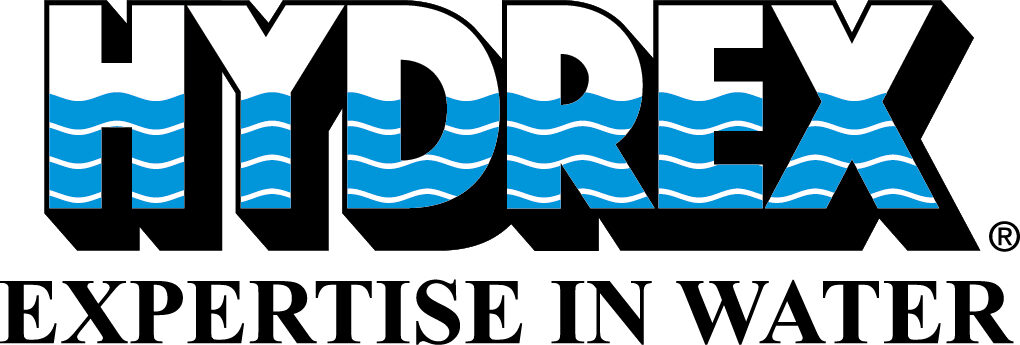Home - Core values - Hydrex across the globe
Hydrex across the globe
Hydrex divers and technicians have successfully carried out major and minor underwater repair operations all over the globe. Just in the months before we wrote this article we mobilized to Australia, Suez, Trinidad, Norway, Poland, Turkey, as well as more locally in Antwerp, Rotterdam, Amsterdam, Fos-sur-Mer, Marseille, Le Havre, Algeciras and other European locations. This is not an exceptional list for us, as we have been traveling all over the world sind the early nineties.
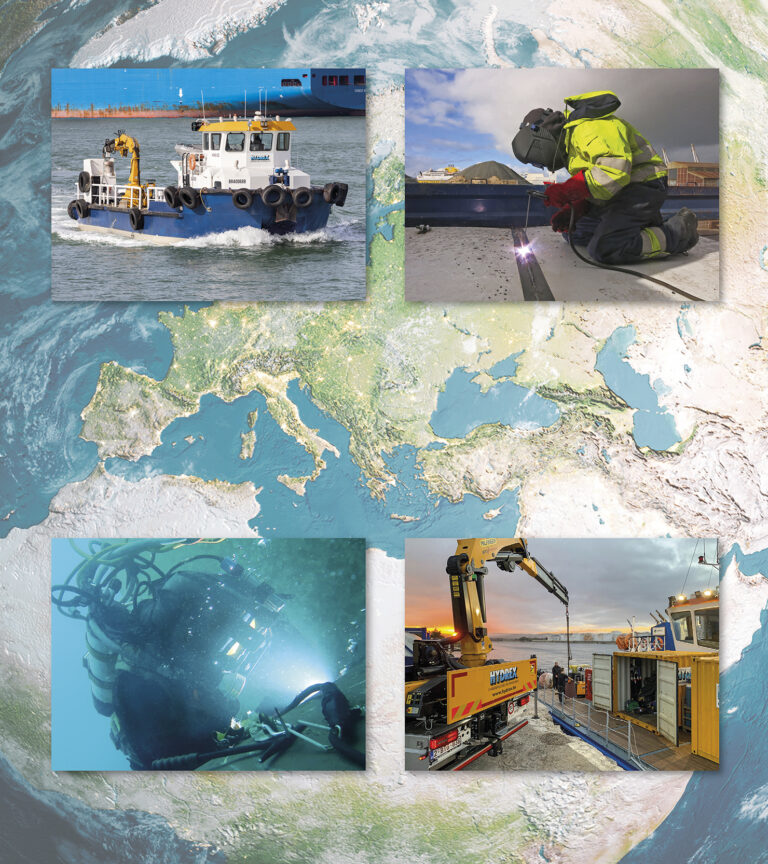
This raises the question: Why, when there are alternative companies much closer to home, do shipping companies insist on Hydrex? In this article we try to answer that question.
Some background
When Hydrex was founded in Antwerp, Belgium in 1974, logistics were more limited than they are today. Most of the work was around Europe. “Hydrex began to become more of a global activity in the 1990s,” recalls the company’s Founder and CEO, Boud Van Rompay.
Hydrex has always been at the forefront of underwater maintenance and repair technology. “In 1979 we developed the use of the cofferdam to carry out underwater repairs ‘in the dry’ that previously could only have been done in drydock,” Boud explains. Because drydocking a ship is very expensive, many ships were knowingly sailing with cracks in their hulls.
Boud recalls, “We started to develop the cofferdam and shipowners and operators saw that they could repair without drydocking. All of a sudden, in the 1990s, we went to do cofferdam repairs all over the world: Africa, China, the Americas, Singapore, the Persian Gulf, the Indian Ocean and so on. That was the real beginning of the worldwide expansion.”
(click to enlarge)
Hydrex has since pioneered many other operations which can be performed successfully out of drydock by trained, experienced personnel using the right equipment and procedures: stern tube seal repairs, thruster repairs, propeller straightening and cropping, rudder repairs, as well as complex hull damage repairs can all be carried out with the ship afloat.
Others have copied the Hydrex developments and there are now several companies all over the world offering these services. Which brings us back to the question: Why call Hydrex to carry out a repair on a ship on the other side of the world?
Understanding how we operate helps answer this question.
How we tackle a remote job
“We operate a 24/7 phone and email line for inquiries,” says the Head of Estimations. “We regularly receive inquiries from all over the world,” he adds.
The first part of every estimate we provide at no cost is our professional opinion as to whether the required repair can be carried out successfully with the ship afloat or not. “That’s a major point,” says Boud. “That gives the client the certainty that it can be done or that they have to look for another solution such as drydock.” This often requires consultation between Estimations, Technical Services and the Chief or Senior Divers and video conferences with the client to obtain the exact information needed. Clients can depend on our conclusion, whether they hire us for the job or not.
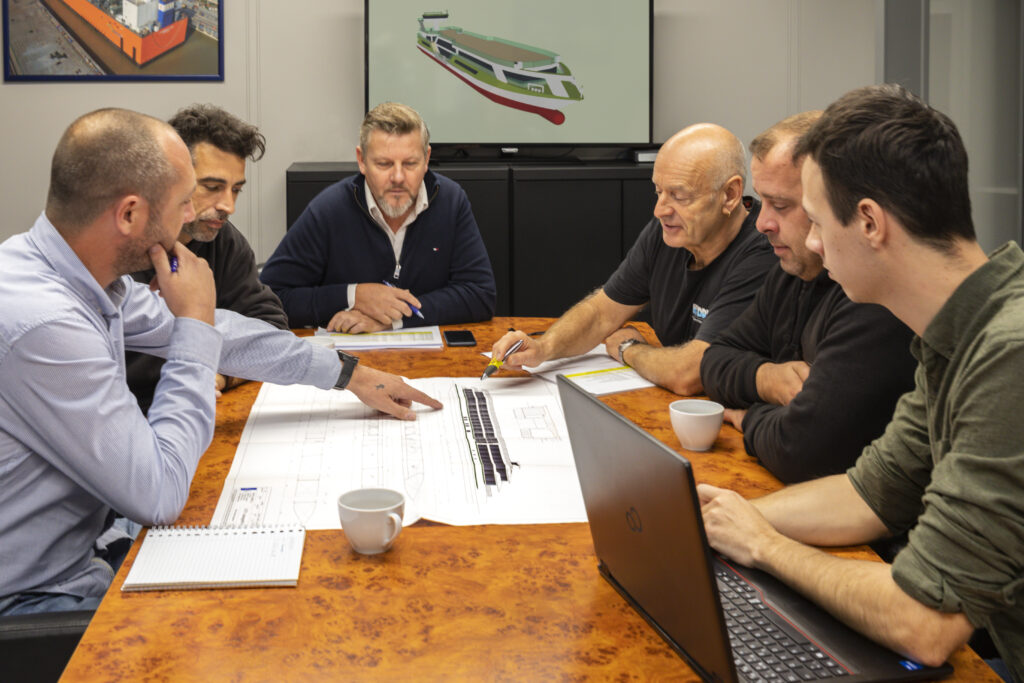
If it is determined that the job is feasible, we provide an estimate. When the client has decided to go ahead with the operation and sent a PO confirming, the preparations begin.
The captain of a vessel that recently needed immediate assistance in Turkey stresses the urgency of a fast response: “Time was extremely important for us as we didn’t know the exact schedule for our upcoming charter. We were incredibly impressed with what Hydrex was able to accomplish and organize over a weekend. The correspondence took place through Saturday and Sunday and late into the night. Having initially reached out on Saturday, by Sunday evening they had a team scheduled to fly in on the Tuesday to complete the job on the Wednesday and fly out on the Thursday. Extremely swift correspondence and very helpful – solutions not problems.” The job went just as planned. This was this customer’s first experience with Hydrex, but it gave them the confidence to call again when another operation which they thought could only be done in drydock came up. The second job was completed with equal quality, rapidity, and efficiency.
Preparing for the job
Koen Smouts, in charge of the depot and the equipment so vital to the success of any job says, “It is very important to get the beginning of the job right in order to have a successful outcome.” This includes having reliable sources of supply who can deliver quickly. All the needed equipment must be available and in excellent working condition. Koen does any needed purchasing. Cofferdams or other parts required for the job are often fabricated at Hydrex and transported to the job site along with the equipment needed, such as flexible mobdocks, propeller straightening devices if applicable, and a host of other specialized equipment, much of it developed in-house by Hydrex over the years.
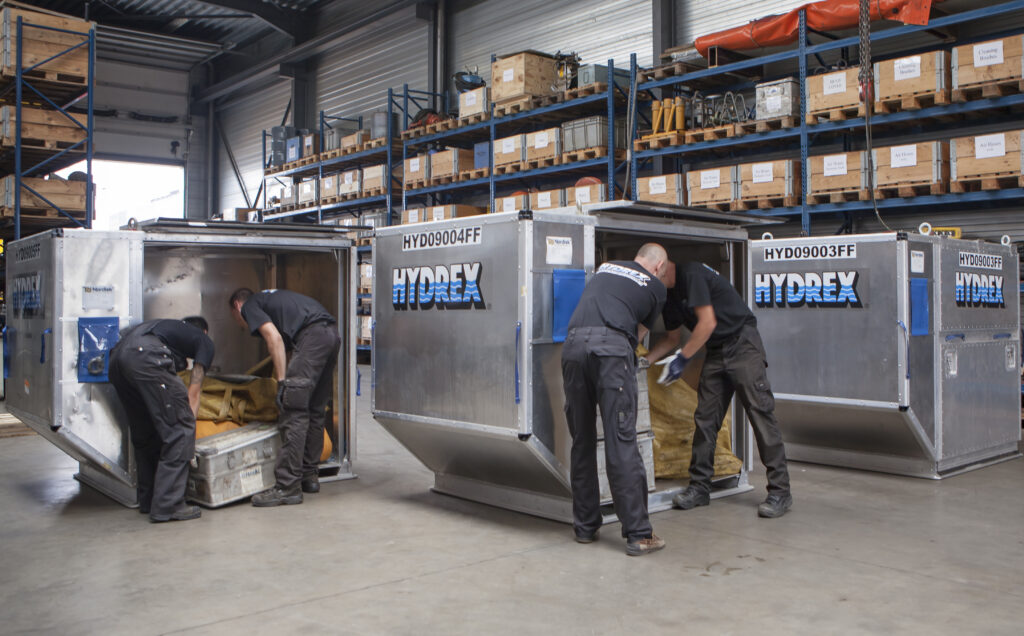
The Technical Services team is responsible for preparing the entire operation and seeing that all the logistics are taken care of. Timo Verhoegstraete and Dave Bleyenberg are both experienced divers as well as being skilled in logistics and administration. They have first-hand experience of being on a job far from the depot, so can plan for every eventuality.
“It is up to us to overcome all logistical obstacles to getting the job done,” says Timo who is in charge of Technical Services. “We obtain visas and dive permits, select the personnel in coordination with the Chief Diver, arrange transport for personnel, equipment and parts.”
“We work with local agents and support companies to make sure that needed workboats and equipment are available on-site,” adds Dave. “We are prepared for anything.”
Toon Joos, Chief Diver, says, “You must make sure you send enough for the whole scope of work, but not too much. We carefully select the team so that we can deliver a rapid, high-quality product.”
“Every location is different,” adds Toon. “We predict and prepare as much as we can in advance, but there are many small details you have to deal with when you get there.” The logistics, the workboat, the local support, local fabrication facilities, the weather conditions and a hundred other factors, not to mention some surprises, need to be taken into consideration.
“Before the team leaves, there’s a lot you have to organize,” says Dave. “Once they arrive, it’s a matter of staying in contact with the team leader and providing support, but the major hurdles have been crossed.”
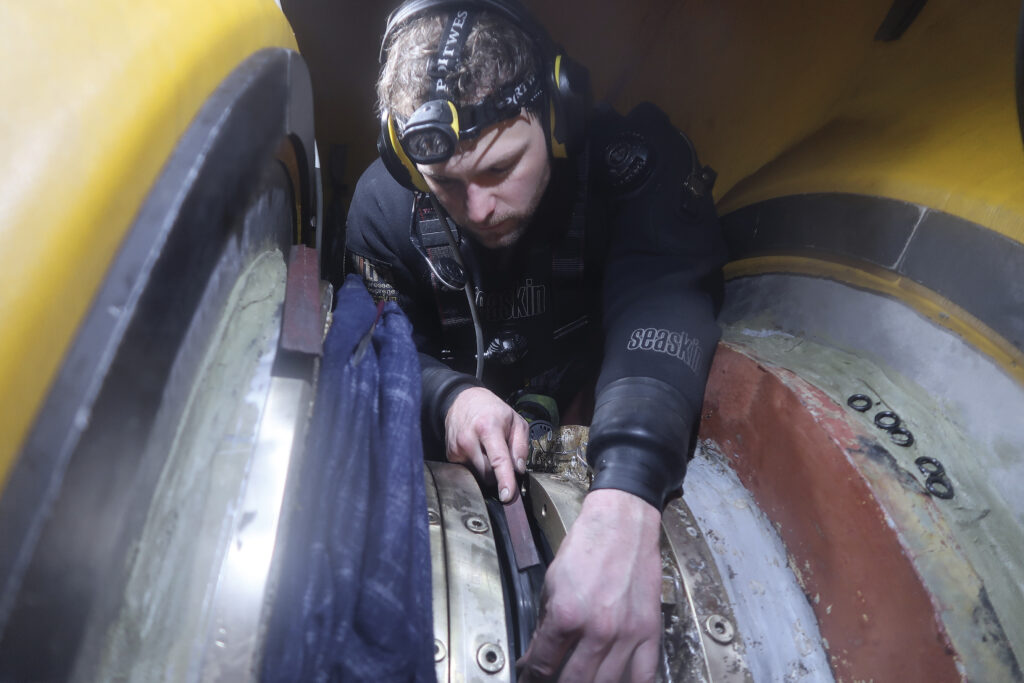
Case in point
Clément Pâquet is a very experienced and proficient Senior Diver who has been on many successful operations in all corners of the globe. He recently led a project in Australia. “We changed the seals of both of a vessel’s propeller shafts in about 60 hours,” he says. “There were twelve of us. Two teams worked day and night on the first shaft while the third team prepared the second shaft. We had two habitats with us so the third team was able to prepare the second shaft while the other two teams worked on the first one. As soon as the first seal was bonded we moved to the second shaft and bonded that seal with no delay in between.”
Another company had estimated eight days and 24 divers for the same job. Based on past experience, the client in question was more confident in Hydrex’s ability to carry out the operation.
In this case the company had a tight window during which the stern tube seals had to be properly replaced and there was a much larger cost involved if the job extended beyond that window. Their confidence in Hydrex was vindicated. The job was completed in three days, start to finish, plus travel time.
The answer
Clément answers the question, “Why call Hydrex?” “I believe clients hire us because they see it as a guarantee that the job will be successful,” he says.
Boud confirms: “It comes down to confidence that the job will be carried out successfully, to the highest standards, rapidly and cost-effectively despite any and all obstacles, and that a correct result will be attained in every case with no failures or excuses.”
If you have any questions regarding our underwater services, do not hesitate to contact us. We are at your disposal 24/7 and ready to mobilize almost immediately.
+32 3 213 53 00
hydrex@hydrex.be
News and projects

Temporary doubler plate installation saves owner costly emergency drydock
When a roro ship at anchorage in Sohar, Oman, was found to have severe damage to its bottom hull plating
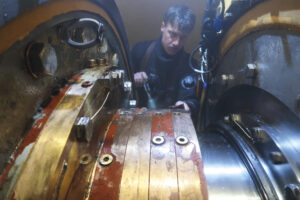
Underwater mobdock repairs: case studies
We are able to perform a wide variety of operations with our flexible mobdocks. These enable us to create a
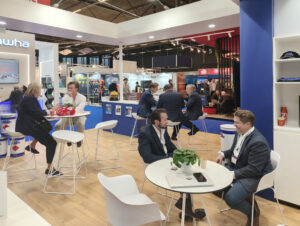
Hydrex and Subsea Industries at Europort 2025
Last Month Subsea Industries and Hydrex took part in Europort 2025 in Rotterdam, together with 1,100 other exhibitors and 13
